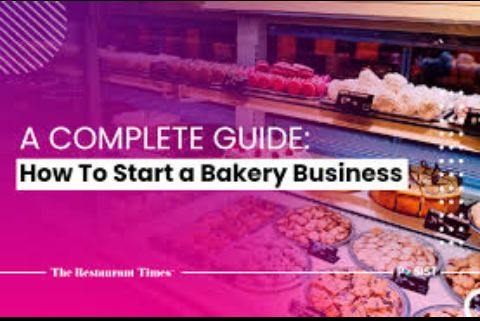According to an Entrepreneurng report, Without having to shoulder the financial burden of opening a restaurant, starting a bakery enables you to cater to specialized markets and showcase your culinary innovation. Even better, you can launch your bakery from your house before spending money on a shop.
Despite being very accessible food service operations, bakers have particular difficulties. We help you through every stage of starting a bakery, from creating a business plan for your bakery and many others.
Below are six steps you can follow:
1. Go with the bakery format
Choosing the layout and use of your space is the first step in starting a bakery. The design of your bakery and how it feels and appears will have a big impact on how the neighborhood will react to it.
Make the effort to select a format that accurately captures your ideal ambiance, fits within your budget for opening a restaurant and takes into account regional competition if you want to make a fantastic first impression.
2. Create a business strategy for your bakery
The most crucial part of the procedure is a clear and comprehensive company plan that shouldn’t be rushed. During the planning stage, familiarize yourself with the nuances of your bakery to make sure you understand how to run it from top to bottom.
3. Locate the ideal site for your bakery
Take the time to choose a site for your shop that is competitively positioned to meet a demand in the neighborhood or monopolize foot traffic, whether you utilize a commercial real estate agent to guide the way or you conduct the real estate search on your own.
Read Also: Eight Lucrative Steps: How To Start Food Business In Nigeria 2023
Keep an eye out for recently terminated leases, especially those that a bakery most recently occupied. In the best-case scenario, you’ll be able to locate a restaurant location that already has a part or all of the equipment you need to run your bakery, such as sizable ovens, refrigerators, or freezers, as well as perhaps even an established clientele.
4. Get the necessary authorizations and licenses for your bakery.
Starting locally can be beneficial when securing all of the restaurant licenses and permits required to begin and run a bakery. When it comes to starting a new business, each state and county has its laws.
You should be thorough and start your research and application processes as early as possible. You don’t want to find out that you forgot one a week before your grand opening or that it takes months to obtain a particular license granted.
5. Create a branding, marketing, promotion, and advertising strategy for your bakery.
Do you still recall the marketing plan you presented in your company plan? It’s time to go back and explore it further right now.
Identifying exactly what you are marketing is the first step in creating your marketing plan. What makes your bakery special and appealing? What benefits may customers expect from your environment or aesthetic? Your bakery’s unique offerings and target market will determine your branding strategy.
6. Establish your bakery’s financial situation, sales projections, and operating costs.
At this point, you should review your bakery’s original financial estimates and your restaurant business plan to schedule daily operational costs. You can more precisely forecast future earnings if you have a solid understanding of your operations and marketing expenses.
Conclusion
Beginning a bakery differs from opening a conventional restaurant in that it offers different chances and obstacles. A thorough business strategy, strict adherence to it, and a well-organized filing system will all aid in the successful launch of your enterprise.
To own a bakery, you don’t need a culinary or business degree from a four-year college. Yet, you’ll be more successful if you have practical experience or academic knowledge of both the baking and business management parts of running a bakery. A formal degree might make you more appealing to banks and investors so you can get the initial money you need to start your bakery.


